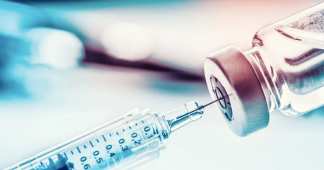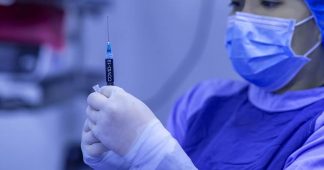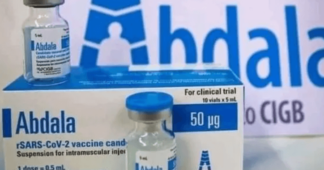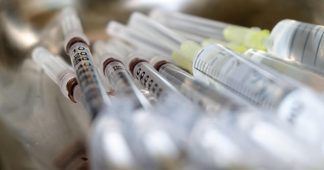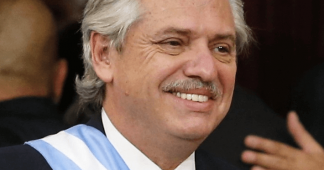After immunising its own population, Cuba’s own developed vaccines are to be marketed internationally, says ANDREAS KNOBLOCH
AS RECENTLY as August and September, Cuba had to cope with the most severe Covid outbreak to date, which pushed the health system to breaking point.
Since then, the number of infections on the island has declined significantly.
For the first time this year, the number of active cases has fallen below 1,000 — and the trend is still downward.
Currently, between 150 and 200 Covid-19 cases are recorded per day nationwide. This is also down to the ongoing vaccination campaign. Almost 90 per cent of the population is now fully vaccinated.
Cuba is not only the only country in Latin America that has its own Covid vaccines, but is also one of the countries with the highest vaccination rates worldwide.
This cannot be appreciated enough, Manuel Vanegas Ayala, representative of the Swiss non-governmental organisation Medi-Cuba Suisse, told the author in Havana.
“It’s so easy to say that Cuba has its own vaccines — as if that were as simple as going out for a beer somewhere.”
It was the “result of an incredible effort by the country, by its scientists and by the people who participated in the clinical trials.”
In Vanegas Ayala’s view, Cuba could “sell itself even better to the world” with this achievement.
In view of the US blockade and the economic crisis, it is “incredible that a country can produce its own vaccines under these conditions.” Many wealthier countries have not been able to do this.
Throughout the coronavirus pandemic, Cuba has refused to import vaccines from multinational pharmaceutical companies or join the World Health Organisation’s (WHO) Covax programme, through which vaccines are distributed worldwide.
Instead, the country focused on developing its own vaccines. The Cuban vaccines are conjugate vaccines, in which a combination of proteins triggers a strong immune response.
Soberana 02 uses a variant of the spike protein of Sars-CoV-2 that is responsible for invading body cells.
The technology has been tried and tested for decades and is used in several vaccines, for example to vaccinate young children.
“There are international initiatives that I respect tremendously. Whether I believe in them is another question,” Vicente Verez Bencomo, director-general of the Finlay Institute for Vaccines in Havana, told the journal Nature.
“We wanted to rely solely on our own abilities to vaccinate our population, not on the decisions of others. And life is proving us to be correct.”
Vaccine stocks were being hoarded by rich countries, he said, so many poorer countries were struggling to access vaccine doses.
Cuba was able to step into the breach.
The state-owned company Bio Cuba Pharma says it has an annual production capacity of 100 million doses for Abdala, Soberana 02 and the booster dose Soberana Plus.
A state-of-the-art biotech complex has just been inaugurated in the Mariel Special Development Zone just outside Havana.
The new facility can produce 30 million doses of Abdala in six months, according to its director Catalina Alvarez Irarragorri.
Currently, Abdala and Soberana 02 are being tested by experts from WHO.
An official worldwide approval by the UN organisation would facilitate international marketing.
But even without this, some countries are already showing interest in the Cuban vaccines, and supply contracts have already been signed.
At the end of September, Cuba sent a first batch of five million doses of Abdala to Vietnam.
Venezuela and Nicaragua are also being supplied with several million doses of Abdala and Soberana 02 respectively.
In January, Vietnam and Venezuela also plan to start producing Abdala themselves.
Iran is also producing the Soberana 02 vaccine, having previously conducted phase III clinical trials in the country.
Cuban vaccines could also soon be produced in Argentina and Mexico.
As is clear from this list of countries, geopolitics is also playing an important role here.
Cuba expert Jennifer Hosek from Queen’s University, Kingston, Canada, even fears that a kind of new cold war is developing in the distribution and recognition of vaccines.
She says: “I think it’s very questionable whether this is really about the effectiveness of a particular vaccine or about the geopolitical relations between the countries concerned.”
This article by Andreas Knobloch, who is based in Havana, was first published in Neues Deutschland on November 29 2021 and was translated by John Green.
Published at morningstaronline.co.uk
We remind our readers that publication of articles on our site does not mean that we agree with what is written. Our policy is to publish anything which we consider of interest, so as to assist our readers in forming their opinions. Sometimes we even publish articles with which we totally disagree, since we believe it is important for our readers to be informed on as wide a spectrum of views as possible.
